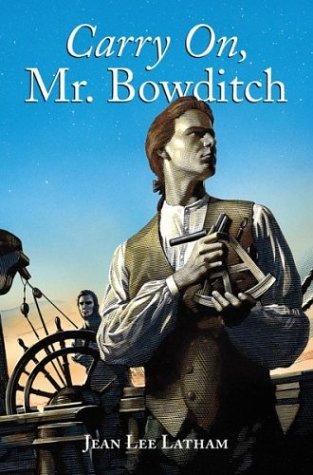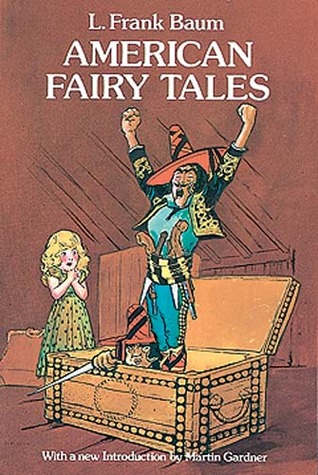The 1956 Newbery Medal went to this piece of biographical fiction about a mathematical genius who lived in the infancy of the American republic. In spite of being taken out of school at the age of ten, first to work in his father’s barrel-making shop and then to spend nine years as an indentured servant, Nathaniel Bowditch (rhymes with “cow ditch”) went on to make great achievements as a navigator, a businessmen, and a scholar. He figured out how to teach common sailors to navigate by the stars. He wrote a book that, to this day, remains a basic text on the science of navigation, at least for the U.S. Navy. He received an honorary doctorate from Harvard, though his dream of studying there was never fulfilled.
Also, though this book doesn’t mention it, Bowditch revolutionized the insurance industry. He amassed a huge fortune for himself and his business partners. He turned down offers to chair the mathematics departments at Harvard, the University of Virginia, and the U.S. Naval Academy. He made important mathematical and astronomical discoveries that saved the lives of countless seamen. This book is a fictionalized account of how a cooper’s son from Salem, Massachusetts, managed all this while living through a time of warfare, disease, hardship, and loss.
Nat Bowditch didn’t get to study at Harvard. So he studied alone, after his long hours working in the chandlery. He taught himself Latin and French so that he could read Isaac Newton’s treatise on physics. He taught himself algebra and calculus. By sheer effort and strength of will, he dragged himself up from a schoolboy whose gift for solving math problems was beyond belief to a merchant ship’s navigator, sailing master, and eventually captain. In perilous voyages around the globe, Nat outwitted wily natives, survived harsh weather, maintained the discipline of a scurvy crew while also proving they could learn the principles of navigation. He steered the ship with eerie accuracy, making difficult upwind journeys in record time, and even, in one instance, managing a hazardous passage in heavy fog with nothing but a stopwatch and a chip log to guide him.
“It’s a simple matter of mathematics,” he said. For him, maybe; until Bowditch came along, “book sailing” was a hazardous business, subject to a textbook that (by Nat’s reckoning) had some eight thousand errors in it. In a life of teaching and writing, sailing and trading, Nat became the navigational expert the fledgling American navy needed. And in spite of a seemingly endless series of crushing losses, including the deaths of nearly everyone in his family, Bowditch continued to find love and happiness on land as well as at sea.
This is an inspiring book about a strong character in our nation’s history, a brilliant man driven by a very unique vision. As it swiftly unfolds, the reader may feel himself to be on an emotional roller coaster. But the emotion that should come out most strongly is pride. You may never have heard of Nathaniel Bowditch before. Once you read this book, you will be proud of him.



